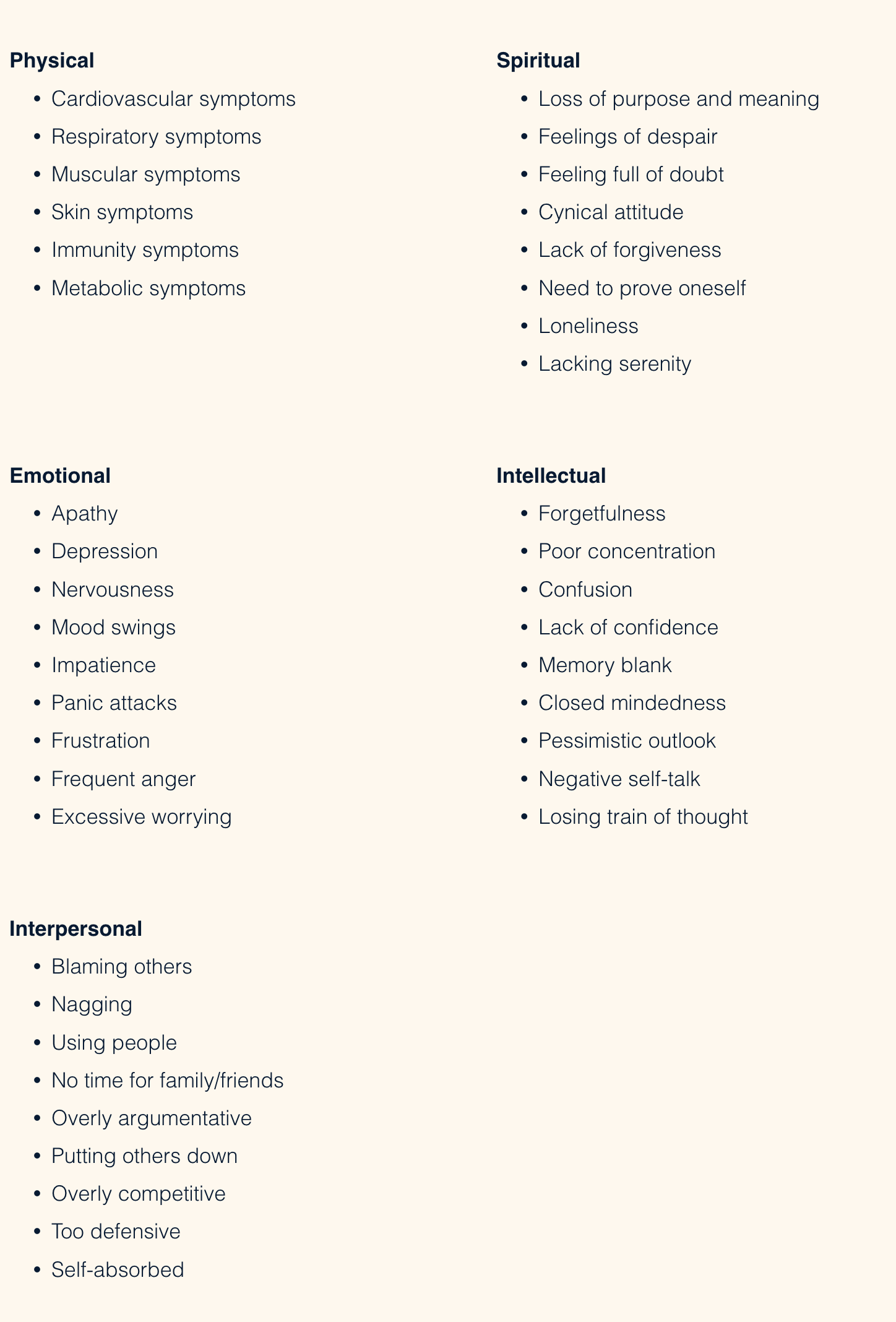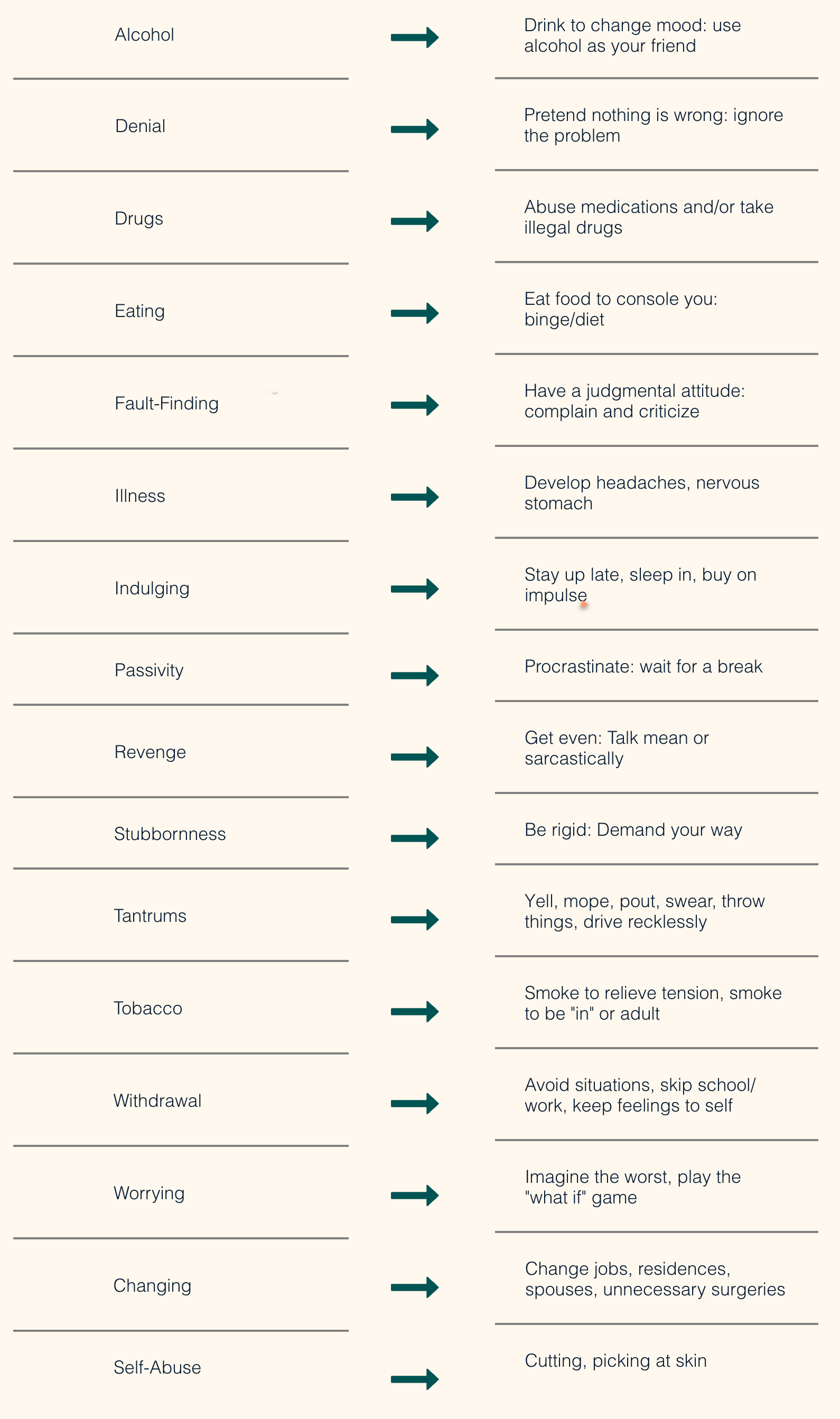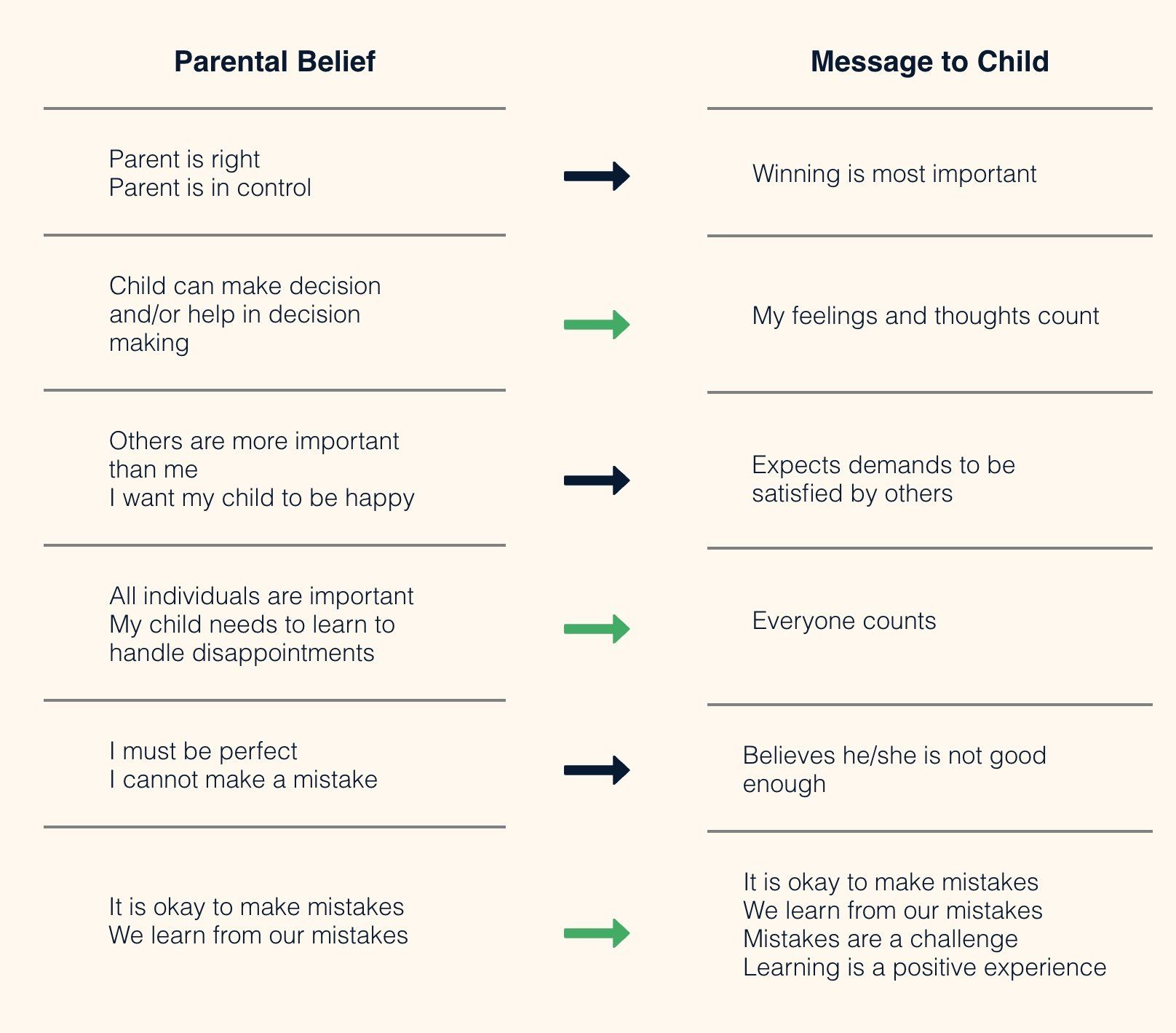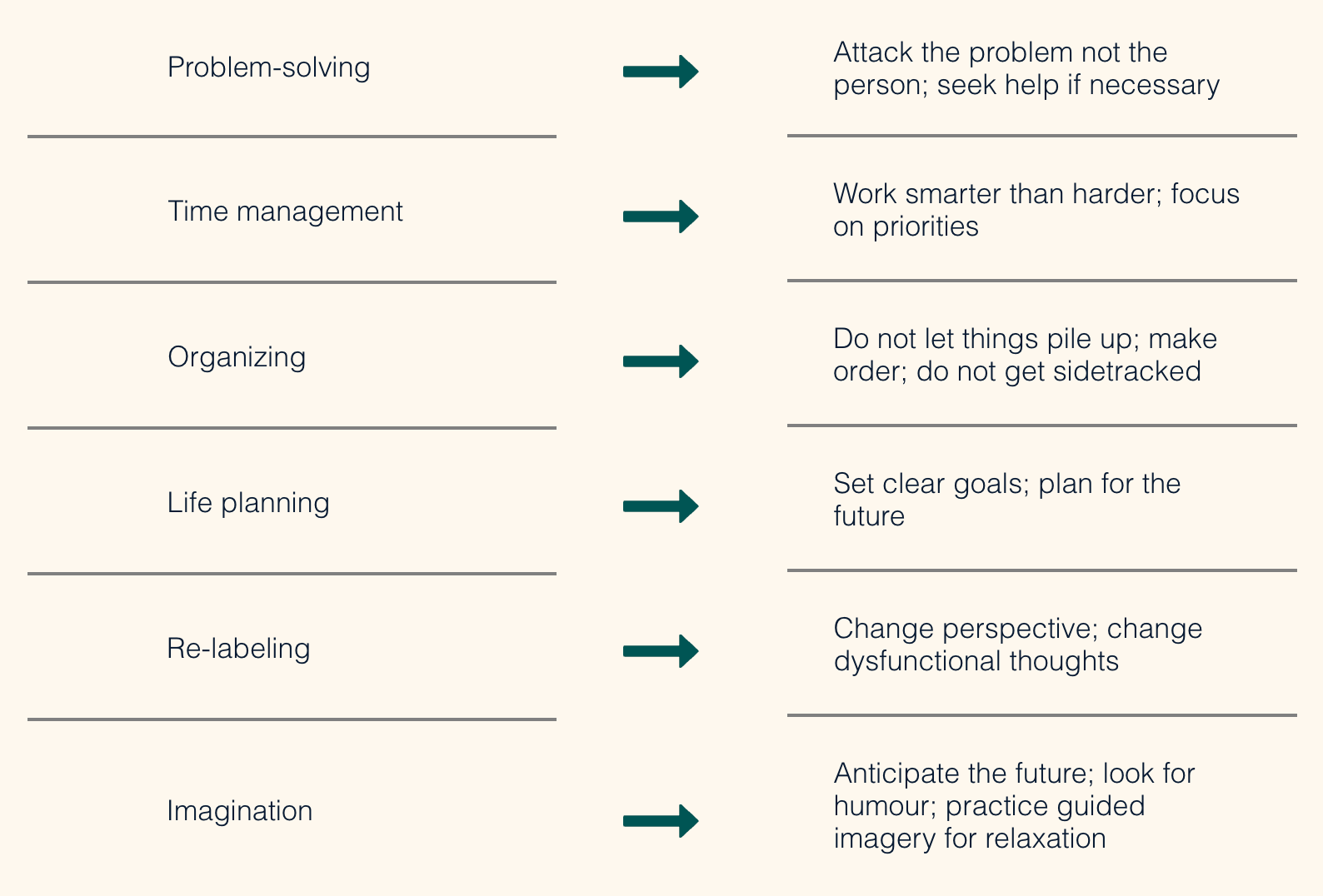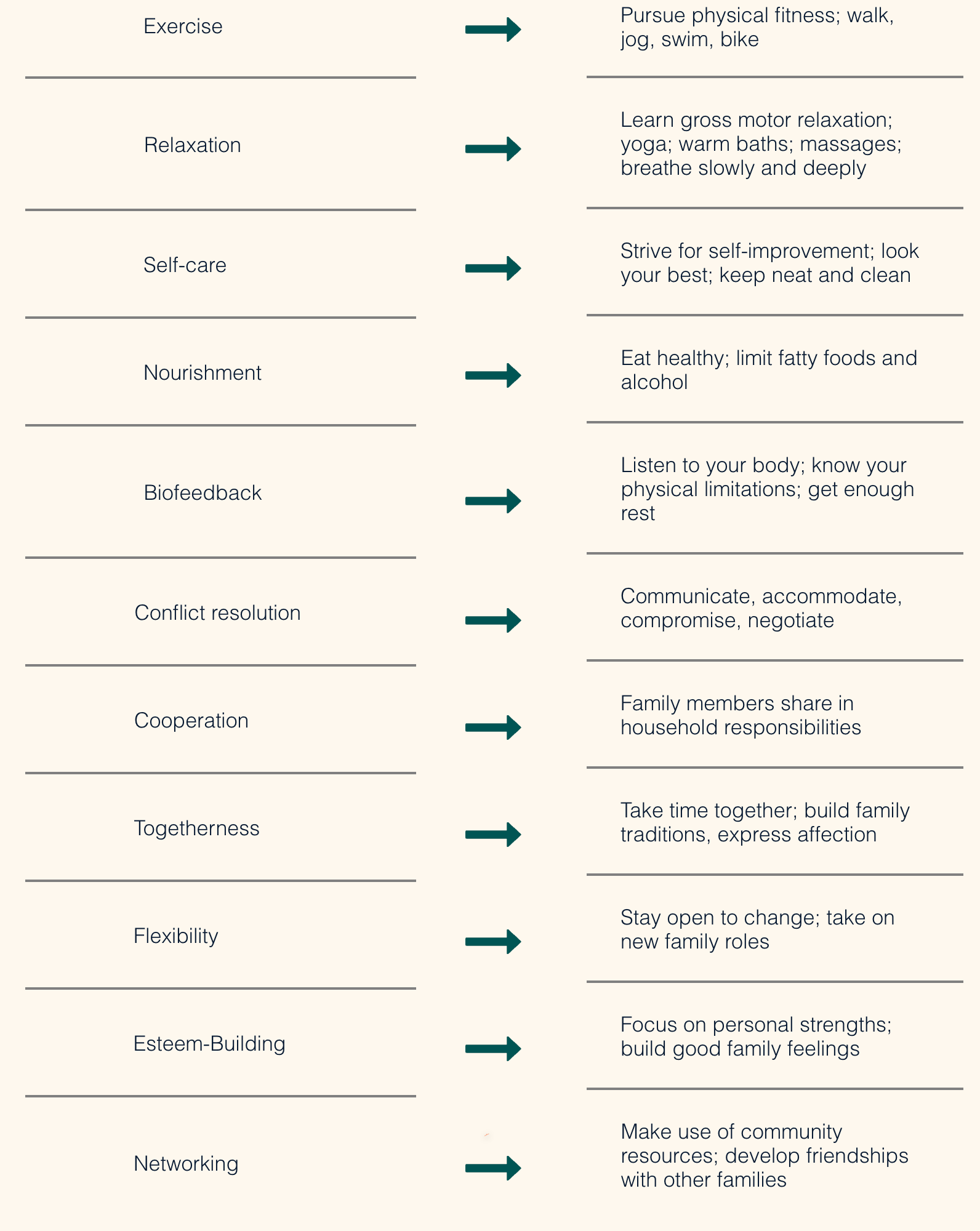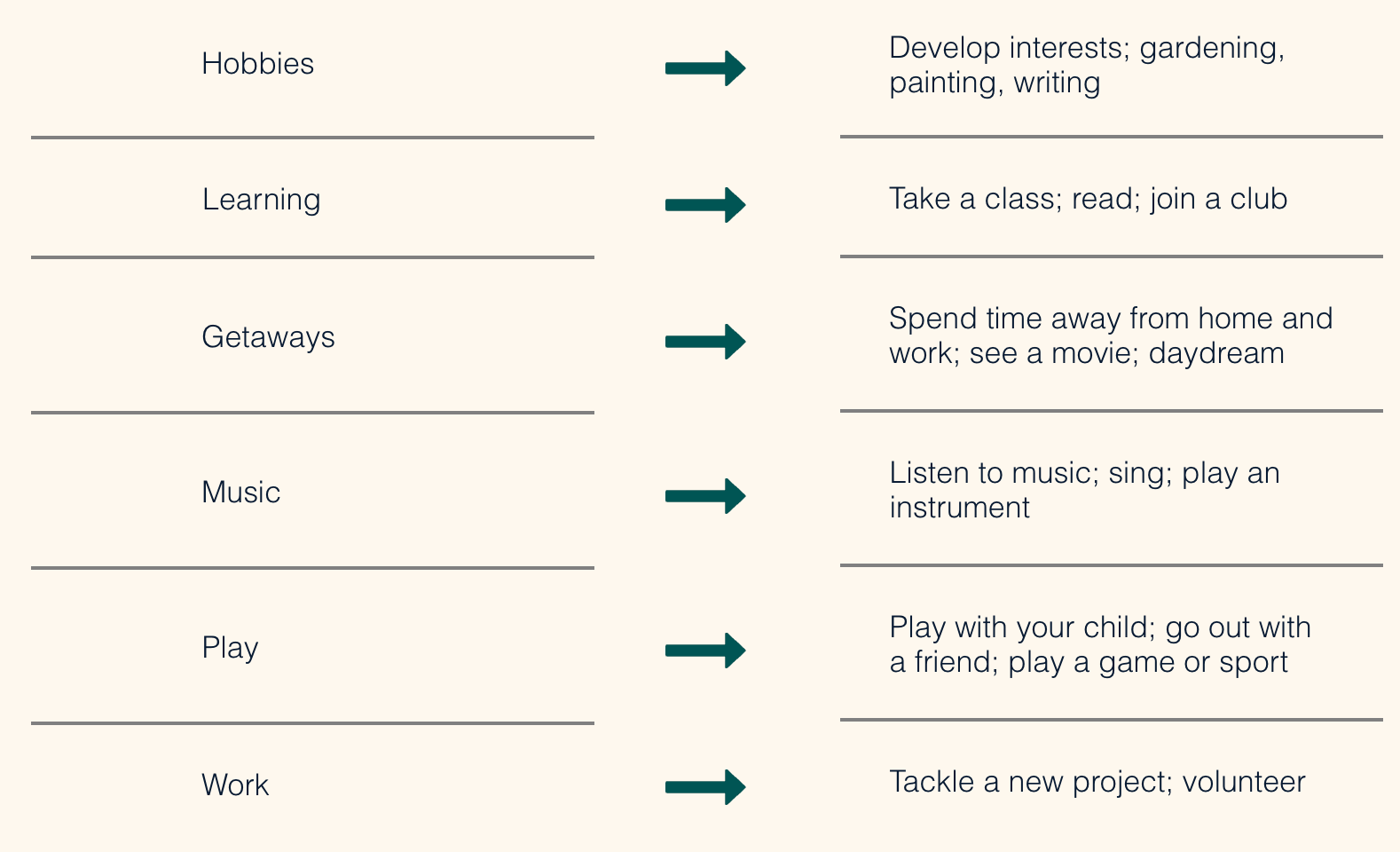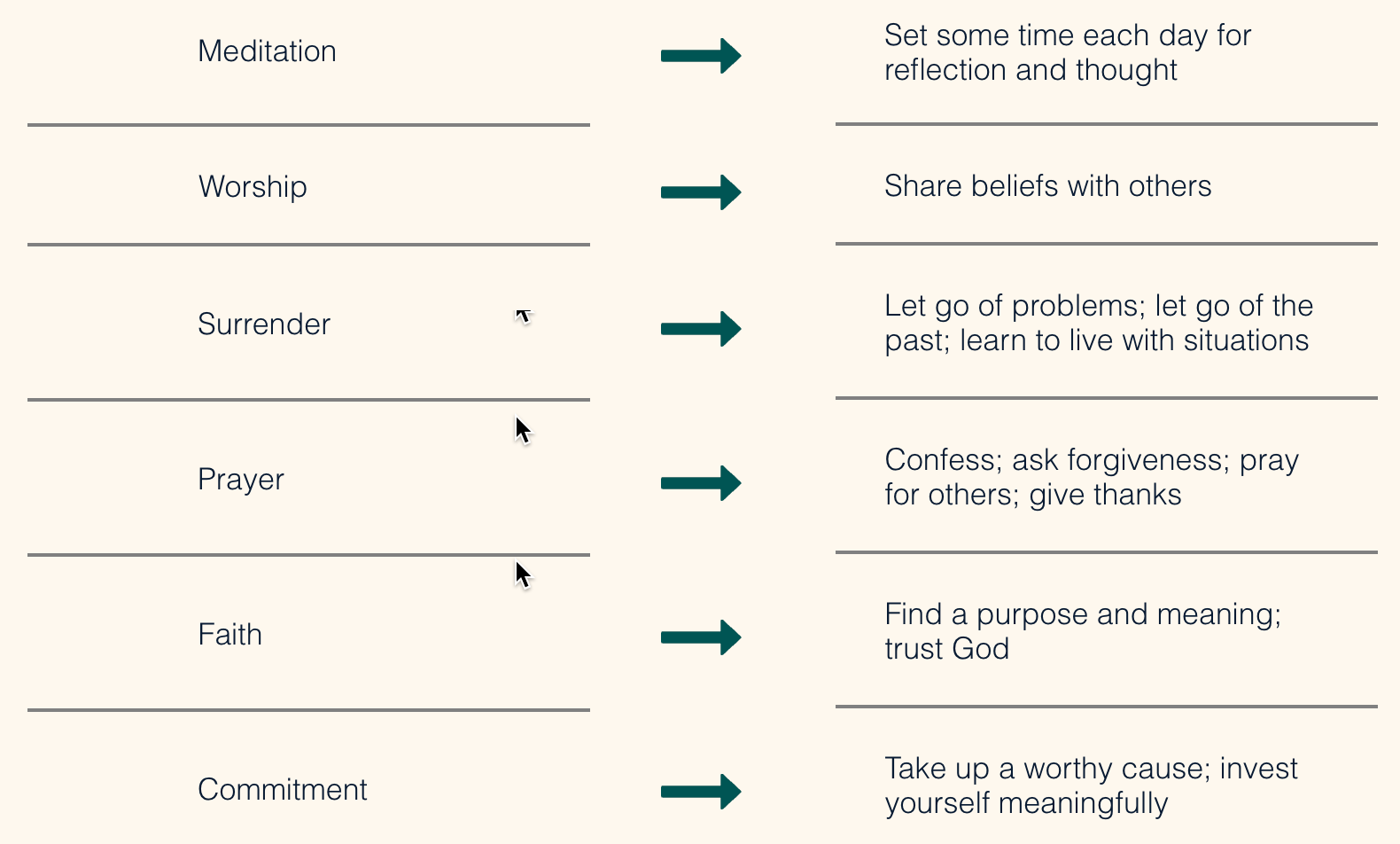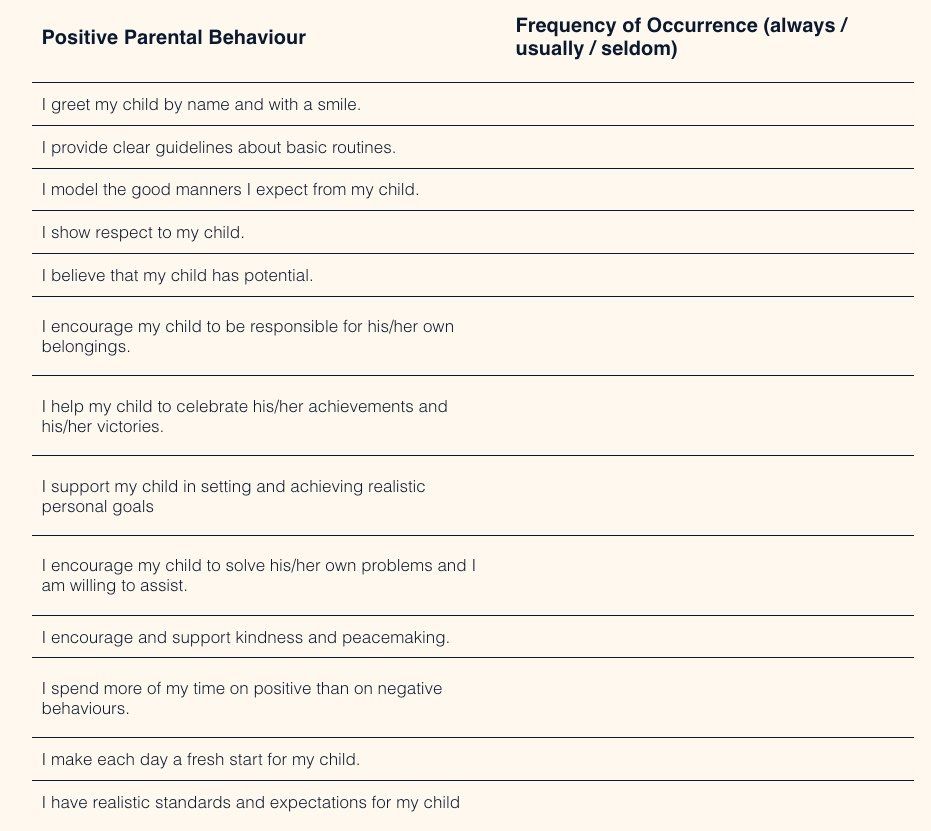Building Personal Resilience: A Guide to Positive Living
Chapter 7
– Managing Stress at Work and at Home
In this chapter
In today’s ever-changing pace of technology, downsizing in the workplace, and economic instability, individuals can easily feel overwhelmed by life’s challenges. Everyday living involves anxiety and stress management at home, at work, even at play. Missing the tennis ball and having a bad golf game can be stressful for some individuals. How we deal with stress can make a difference to our mood, out thoughts and our behaviour toward ourselves and others.
Stress affects everyone…children and adults. This chapter examines symptoms of stress, negative and positive coping strategies and positive strategies for stress and anxiety at work and at home. The chapter focuses on our ability to handle life’s daily stresses, which can have an impact on our psychological and physiological health.
About the Author
Dr. Sandy Ages joined Gilmour Psychological Services® in 1994 and we have been fortunate to have her as a colleague and friend for twenty-five years. Sandy retired in August, 2019.
Table of Contents
How Stress Affects Your Life
Stress is a fact and a reality of life. It is the pressure we feel at work to meet deadlines, to handle conflict, to perform our best in front of colleagues, clients or our supervisor. It is the pressure we feel at home to meet the everyday challenges coping with family issues, bills etc. Stress affects everyone.....child and adult. Dr. Walter Cannon identified the body’s immediate reaction to a threatening situation as the “fight or flight” response. In the early evolution of humanity these reactions were critical to survival for hesitation could be fatal. There was a need to respond quickly to the threatening situation and either fight or flee.
Reaction to Stress
The body’s physiological changes to stress occur rapidly. What happens to the body in a stressful situation?
- adrenaline secreted
- respiration increases
- muscles tense
- heart rate increases
- blood pressure increases
- sugar production increases
- blood vessels constrict
- muscles prepare for action
- immediate surge of energy
Hans Selye in his research on stress, coined the term General Adaptation Syndrome which is characterized by three stages. In the first stage, alarm, the body mobilizes for action; the second stage, resistance, where the part of the body or system attacked takes action; the third stage, exhaustion, occurs as resistance wears down. This last stage is a reaction to the first two stages. It either allows the body to recover from the stressful reaction or once again prepare for the first stage, alarm to reoccur. If an individual continually responds to stress in this heightened manner, the individual becomes weakened and vulnerable or susceptible to illness.
A stressor is any stimulus that is internal or external to an individual and has the potential to set off a physiological response. Our individual stress reactivity is our tendency at a particular time to be vulnerable to stress. Our stress reactivity is based on several factors:
- our personality
- our cognitions
- our emotions
- our behaviour patterns
Stress is viewed as the interaction of a stressor ( an internal or external event to an individual ) and the individual’s stress reactivity. Stressors can be positive and challenging to promote action or motivation to perform a specific behaviour. Stressors can be negative and create distressful physical or psychological reactions. The following formula explains the relationship between stress, stress reactivity and the stress response.
stress + stress reactivity = stress response
Case Examples
The examples are fictitious due to client confidentiality.
At work, John (41 yrs.) views a computer problem as a challenge. He is energetic and highly motivated to plan his strategy. He spends time working late at the office and frequently brings work home.
Dave (52 yrs.) constantly faces deadlines to meet at the office. He is upset by computer problems and sees them as set backs. These cause him distress, frequent headaches and difficulty sleeping. He is irritable with his wife and children.
Ann (9 yrs.) is complaining of stomach aches and is reluctant to go to school. The doctor does not find any physical/medical explanation. At school the teacher notices that Ann has difficulty concentrating on her work. Ann’s parents separated recently.
Mary (39 yrs.) works full time and is also caring for her mother who has serious health problems. Mary has gained 15 pounds, and is experiencing problems concentrating on work.
Janet (47 yrs.), a manager of her department in a large company, is demanding of herself and the workers around her. She easily loses patience with her staff for the smallest error.
Do you see yourself in any of these situations? Are there any similarities with the way you cope with stress and the examples that have just been described?
Symptoms of Stress
The symptoms of stress can take several forms: physical, emotional, intellectual, spiritual, and interpersonal. How does stress affect you? Examine the following checklist.
What are Your Symptoms of Stress?
What life events may create stress? Marital separation, divorce, death, birth of a baby, change of a job, change of a school are just a few examples of life changes that can impact on your level of stress. What changes have occurred in your life over the past year?
How do You Cope with Your Stress?
Do you have positive or negative coping strategies to handle stress? Let us first examine some negative coping strategies to stress.
Negative Coping Strategies
As you read through the list do you recognize some behaviours that you practice to cope with your stress? How beneficial do you feel these behaviours are in successfully alleviating some of the pressure that you are feeling? Are there some behavioural changes that you would like to implement? My professional advice to you is to try to eliminate these negative strategies.
Look at the following checklist of positive coping strategies to stress. How many do you practice? Are there some new behaviours that you can try that will be helpful to you?
Positive Coping Strategies
Interpersonal
Mental
Physical
Diversions
Spiritual
Are there any suggestions in the list above that you may adopt to better cope with the stress in your life? What goals can you set for yourself? There are concrete steps that you can take to alleviate some of the tension in your life. Learning to develop a healthy lifestyle to handle stress will have a positive impact on your life.
When would it be advantageous to seek professional help?
It is important to look at the effect or impact that stress has on your work and home life. A professional therapist – psychologist, psychiatrist, social worker or counsellor can assist in this process. Being able to learn appropriate strategies to handle the various stressors is an important function of the role of the professional. Because you are feeling stressed and vulnerable, the professional can offer different perspectives on the situation and work with you to learn how to better cope with the stressors.
What to expect when you meet the professional therapist
After a comprehensive initial assessment, you will have an understanding of the symptoms of your stress: physical, emotional, intellectual, spiritual, and interpersonal. Examining the changes within the last year and the anticipated changes in the next year will give you an appreciation of the various issues that have had an impact on you.
Sometimes a therapist will tell you that your feelings, thoughts, and behaviour are quite normal. This can be reassuring to you. This is particularly important if you have sometimes reflected that you thought you were “going crazy”. The therapist will work with you to develop a treatment plan. This plan utilizes the behavioural, emotional, and cognitive processes to handle stress. The plan may include:
- relaxation ( gross motor and imagery )
- assertive communication skills
- conflict resolution
- anger management
- organizational skills for home and work
- exercise program
- cutting back or eliminating caffeine rich foods/drinks
- cognitive restructuring
If the therapist is doing psychotherapy using a cognitive behavioural framework, you will learn how your cognitions or thoughts can effect your emotions and behavioural responses. Learning productive thinking strategies can effect both the body, the mind, and the emotions. You will begin to feel that you have more control. You will develop a sense of well being and self-empowerment. The techniques are not complicated but do require you to “unlearn” old thinking patterns. Negative self-statements are an accumulation of self-limiting mental statements that are unconstructive and can create and maintain stress.
One of the case studies described Janet, a perfectionist. She is hard-driving and intolerant of mistakes made by herself and others. Stress is generated by the continual self–thoughts that “my efforts are not good enough”, “I should be working harder, “I can’t make a mistake”.
The favourite expression of this type of person is “I should”, “I have to”, “I must”. The most effective way to handle negative self-talk that effects your stress is to counter the statements with positive supportive statements. Countering involves writing down and/or mentally rehearsing positive statements which refute the negative self-talk. Since stress can be created through negative self-talk, you can change the way you feel by substituting positive self-talk. This takes practice, lots of practice and, of course an awareness of how your thoughts affect your stress.
When you become aware of when you are engaging in negative self-statements and then counter with alternative positive supportive statements, you are on the track of turning your thinking around. With practice and consistent effort, you will change not only the way you think but also the way you feel.
How to access professional help
To find a professional therapist contact your employee assistance program or your family physician. There is a list of counselors or therapists that are registered with your provincial or state professional associations. This office can give you the names of appropriate professionals in your geographical area.



